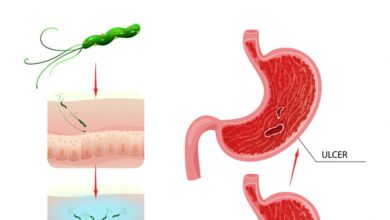Dietary Recommendations for Crohn’s Disease

Crohn’s disease is one of the two main types of inflammatory bowel diseases, along with ulcerative colitis. Both conditions involve an immune reaction against the gastrointestinal tract.
Crohn’s disease often inflames the small intestines, leading to symptoms such as diarrhea and abdominal pain. It may contribute to a reduced appetite, and inflammation hinders the body’s absorption of nutrients from consumed food.
Surgical operations that remove parts of the intestines can exacerbate absorption issues. Obtaining sufficient nutrition and maintaining a healthy body weight can be challenging for individuals with Crohn’s disease.
Foods that Trigger Irritation
Irritating foods are any foods causing unpleasant symptoms. Although they may induce symptoms, irritating foods do not necessarily harm the body. Individuals may have different irritating foods, but here are some commonly encountered foods and beverages that are advisable to avoid:
- Highly insoluble fiber foods (do not dissolve in water): Raw cabbage, apple skin, sunflower seeds.
- High-fiber foods: Brussels sprouts, cabbage, cauliflower, asparagus.
- High-lactose foods: Cow’s milk, cream, ice cream, cream cheese (especially for individuals with lactose intolerance).
- Artificial sweeteners: Sorbitol, mannitol, xylitol, sucralose, aspartame, saccharin.
- Added sugars and sweet foods: Cookies, candies, coconut sugar, honey, maple syrup.
- High-fat foods: Butter, dishes with cheese, fried foods.
- Spicy foods: Some spices, chili powder.
- Alcohol.
- Caffeinated coffee/tea, energy drinks, and other caffeinated beverages.
- Sugar-sweetened drinks: Carbonated beverages, coffee/espresso drinks with sugar/syrup, juices.
Foods that Increase the Risk of Inflammation
Frequent consumption of certain foods over time has been shown to increase the risk of inflammation:
- Red meat: Beef, lamb, pork, veal.
- Processed meat: Sausages and deli meats, bacon, sausages, ham, etc.
- Coconut oil, milk fats, palm oil.
Foods that Can be Included in the Diet
Incorporating certain foods into the diet can be beneficial for individuals with Crohn’s disease:
- Fruits: Bananas, raspberries, applesauce, fruit purees.
- Vegetables: Zucchini, cooked carrots, green beans.
- Omega-3 fatty acid-rich foods: Fatty fish (salmon, tuna, mackerel, etc.), walnut oil, chia seeds, flaxseed oil.
- Leafy green vegetables in smoothie form.
The Role of Dietary Fibers in Crohn’s Disease
Dietary fibers are essential for overall health. They can help maintain cholesterol, blood pressure, and weight at healthy levels. Consuming around 23 grams of fiber per day may reduce the risk of a Crohn’s flare-up by up to 40%. However, while experiencing symptoms, high-fiber foods can worsen the disease’s symptoms.
The best choice is foods containing soluble fibers. Soluble fibers absorb additional liquid in the intestines, helping to slow digestion and alleviate diarrhea. On the other hand, insoluble fibers can increase water content in the intestines, leading to watery diarrhea, stomach cramps, or gas.


